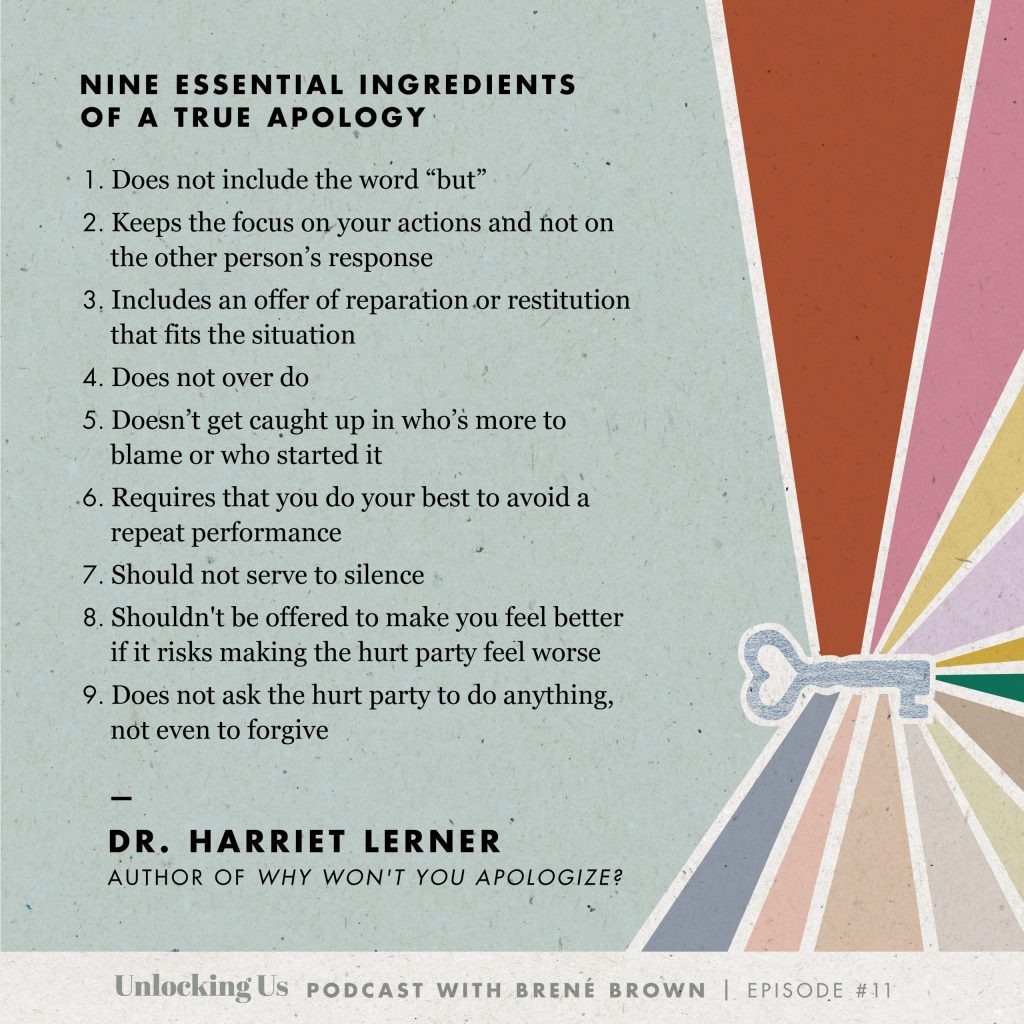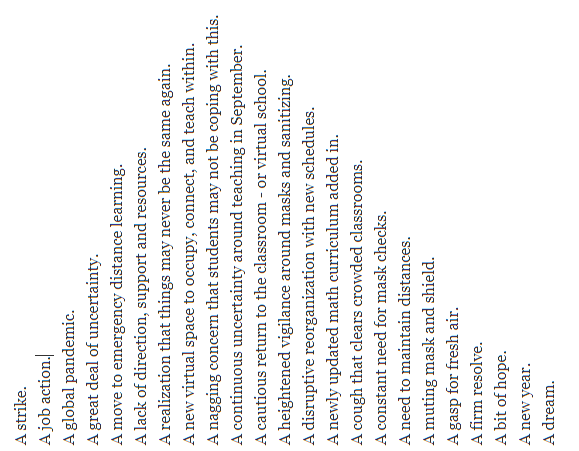“I’m Sorry”
A combination of words we are all familiar with.
We’ve said them, we’ve received them, we’ve wished for them, we’ve accepted them and we’ve rejected them.
Humans make mistakes.
Mistakes are the way we grow and learn.
Consequently, this learning process involves others whom our mistakes can directly impact in negative ways.
Professor, author, and researcher Dr. Brenè Brown hosts a wonderful podcast called Unlocking Us which can be found on Spotify or by clicking here (https://brenebrown.com/podcasts/). In a two part podcast from May 6, 2020 titled “I’m Sorry: How To Apologize & Why It Matters”, Psychologist Dr. Harriet Lerner discusses the power of apologizing and how to apologize.
Dr. Lerner goes beyond the limits of “I’m sorry” and dissects the anatomy of a true and meaningful apology. Attached are her “Nine Essential Ingredients of a True Apology”. These nine crucial points are simplified for reference but are explained in great user friendly detail throughout the podcast.
How can we use “True” apologies in the classroom?
Although this podcast is not specific to education, here are my takeaways through the lens of a teacher:
Apologize to children
- Dr. Harriet Lerner pleads that apologizing warrants respect. Teachers are human too and we make mistakes. Displaying vulnerability and owning up to the mistakes we make creates a safe space for students to talk about their mistakes and feel encouraged to take risks in their learning.
- Getting frustrated is okay – but Dr. Lerner says, “don’t frame it as an apology”. Sometimes we can get frustrated (again, not robots here) but apologizing for frustrations is not meaningful if the blame is placed back on the student. Example: “I am sorry I was upset but you kept interrupting me”.
- If we can’t apologize to our students, how can we expect them to understand or feel motivated to apologize to us
Model effective apologies for children
-
- Improper apologies can weaken connections and therefore damage relationships
- We can keep in mind that apologies are not an end to a conversation but allow for the foundation of further conversations to be had. Dr. Lerner advises that the apologizer does not tack “but” or “I’m sorry you feel that way” to the end of an apology as it “cancels” out the meaning. Add ons do not attempt to comfort the hurt party but rather attempt to justify the hurtful behaviour.
- Other unnecessary add ons include: “stand up straight”, “look me in the eye”, “say it like you mean it”, “you should think about it more”. Dr. Lerner says those types of conversations can be had later, but to focus on what is really important between the two people – their relationship and the connection they want to maintain
- We can teach our students that apologies do not solve everything. One is not required to respond with “That’s okay” when someone apologizes because sometimes it is not okay. Instead we can teach students to thank the other party for expressing their apology by saying, “Thank you for the apology” or “I appreciate the apology”.
- When apologizing we should empathize to understand what the other person needs at that moment. We can do this by providing people with the time and space they need until they are ready to talk.
Link to part 1 and 2 of Dr. Brenè Brown’s podcast Unlocking Us with guest star Dr. Harriet Lerner titled “I’m Sorry: How To Apologize & Why It Matters” published on May 6, 2020 –
https://brenebrown.com/podcast/harriet-lerner-and-brene-im-sorry-how-to-apologize-why-it-matters/




